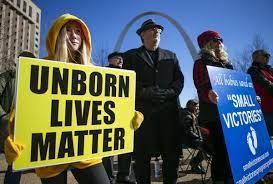
Katherine Stewart is an investigative reporter and author of the book, The Power Worshippers. I attended her talk titled “The dangerous rise of the religious right.”
“Christian nationalism” she said, would be a better descriptor. Central to the ideology is the (historically false) idea of America founded as a Christian nation. But this is actually more about politics than religion. And it’s a vast powerful force, a defining feature of our political landscape; threatening our democracy. January 6 showed that.
This did not originate as some spontaneous movement from the heartland, a reaction to the social changes starting in the ’60s. Instead it was organized from the top down, by people whose real agenda is gaining power for themselves and their ilk. They constructed a huge national advocacy and messaging infrastructure, seeking government support for their movement, through measures that privilege it over other societal actors.
Stewart quoted Supreme Court Justice Scalia (an outspoken Christian), ruling against a religious exemption for peyote use, saying we can’t let everyone decide what laws to obey based on their religious beliefs. Yet, she said, that is actually exactly what the religious right is seeking.
The movement is, again, politically driven. The “culture war” stuff is really secondary; indeed, weaponized tools to serve the political agenda. In particular, the abortion issue did not create the religious right; rather, the issue was created to serve the political aims. When Roe v. Wade was decided, most Christians actually supported abortion law liberalization. But new right leaders nevertheless latched onto abortion as an issue that could be exploited to manipulate a sizable voter base and ignite a hyper-conservative counterrevolution. Stewart argued that these leaders do not actually want to minimize abortions; what they really want is to keep the issue boiling.

It’s a glaring irony that however rabid these people are about protecting human life before birth, they lose all interest in children once they’re born. The states where “right-to-life” is strongest are the states where actual living children are treated worst by public policies.
This movement has always been anti-democratic and authoritarian. Not just another set of voices debating in the public square. Its leaders don’t really imagine they can persuade a voting majority to their point of view. Instead they aim to prevail by flouting democratic processes, having contempt for the idea of the common good. This again was exemplified on January 6. Stewart noted that other authoritarian leaders, like Putin and Erdogan, have similarly exploited religion as a vehicle for political power without democracy.
She also saw the movement as inseparable from racism, though the connection is complex. The voter suppression that is part of its tool-kit for holding power undemocratically targets ethnic minorities. There are notions of “purity” versus impurity, and an emphasis on concepts of identity and appeals to a heritage culture (read: white).
Stewart said that the religious right is far more organized and focused than its opponents. We need a range of voting reforms to stymie undemocratic techniques like gerrymandering and voter suppression. But while the movement fully understands the importance of voting, others are more casual about it. Failing to realize how much is really at stake.

At the end of the day, Stewart opined, the narrow-minded Christian nationalist vision embodies what would be a weak society, not a strong one. I would add that this movement clearly has its head up its butt, all pretense of morality made absurd by their supplanting the worship of Jesus for a cult-like devotion to Trump, the most morally depraved personage in our political history.
